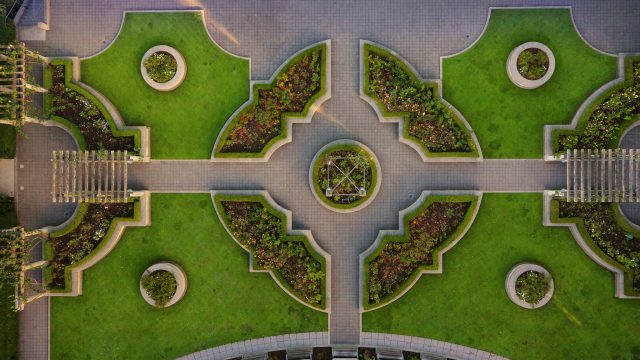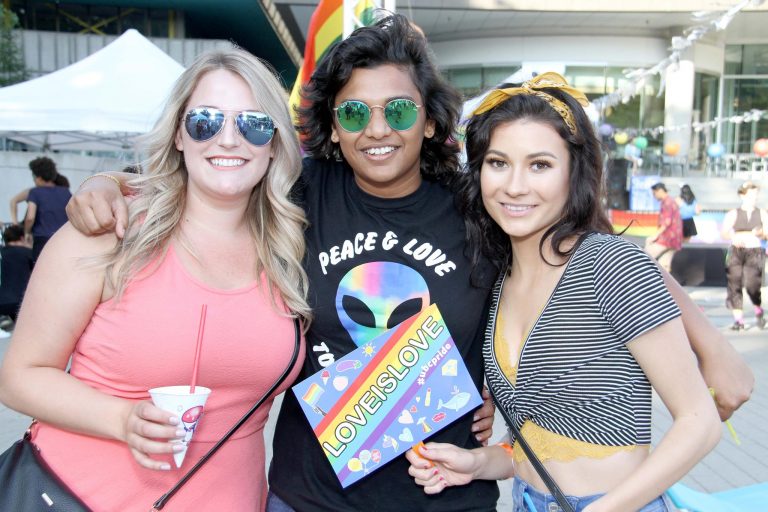Statement in Response to Attacks in Sri Lanka

Surrounded by the remains of an Easter egg hunt and a lovely family dinner, I cried. It had happened again, on another holy day in a different sacred house.
Once again, our community is feeling the impact of people killed in the midst of worship, on one of the holiest days for Christians. The devastating attacks on people in churches and at hotels on Easter Sunday in Sri Lanka are appalling and, like Christchurch, are an attack on all of us. We condemn these atrocities and stand with our Sri Lankan faculty, staff, and students – and all those affected – as they mourn losses within their extended family and friends.
UBC is committed to fighting hate and to ensuring a welcoming and respectful environment where we can all feel respected and supported no matter our faith. Discrimination, on any ground, including religious belief, is contrary to the values of the University. These values are supported and protected by UBC’s Policy #3: Discrimination & Harassment, the BC Human Rights Code, and the Canadian Charter of Rights and Freedoms.
UBC welcomes students, staff, and faculty from across the world to our campus. As a university we are a global community, and we are committed, through our spaces of knowledge and learning, to enhance efforts that foster a more inclusive world.
I encourage all those affected by this event to access the resources and services available at UBC.
If you are concerned about your physical safety, please reach out to UBC Campus Security. For other supports, the following resources can assist you:
- UBC Counselling Services
- UBC Chaplains
- UBC Employee and Family Assistance Program
- Human Rights Advisor, UBC Equity & Inclusion Office
- UBC Campus Security
The #UnitedforSriLanka vigil, organized via Facebook is scheduled to take place at Holland Park in Surrey at 6:30 p.m. on Monday, April 22nd.
Sara-Jane Finlay, Associate Vice-President, Equity & Inclusion
Rule Out Racism 2019
Join us for a conversation about race and racism at UBC. Rule Out Racism is a week-long series of events organized by the Equity & Inclusion Office focused on the need for greater literacy and conversation about race and racism within the UBC community in the Okanagan.
Taking place from March 19th to 23rd, this year’s campaign features a highly provocative program including a panel discussion “Race Matters in Leadership”. This engaging workshop provides an opportunity to learn about the politics of hair, a film screening & discussion on anti-racism resistance, and interactive booths about racism at UBCO and white privilege.
Rule Out Racism events are free and open to everyone in the UBC community.
Signature Event
- Race Matters in Leadership: A Panel Discussion, March 22, 1:00-3:00 PM, UNC 200 Ballroom
Upcoming Events
- Breakfast: “Official opening of Rule Out Racism Week”
Monday, March 18 | 8:45 – 11:00 AM | International Programs & Services UNC 227 - Booth: “Intercultural Development Program Talks about Racism at UBCO”
Monday, March 18 | 11:00 AM – 2:00 PM | International Programs & Services UNC 227 - Discussion on Stereotypes: “More to Mexico than Margaritas”
Tuesday, March 19 | 5:00 – 7:00 PM | Aboriginal Programs & Services UNC 212 - Booth: “White Privilege: What is it good for?”
Wednesday, March 20 | 9:30 – 11:30 AM | UBC Okanagan Library Lobby - Cultural Studies Film Presentation: “Colours of Resistance II: Short Films & Discussion”
Wednesday, March 20 | 4:00 – 5:30 PM | UBCSUO Theater UNC 106 - Workshop: “Racial Politics of Hair”
Thursday, March 21 | 12:30-2:00 PM | location coming soon. - Community Event: “Sikh Temple Open House”
Thursday, March 21 | 6:00 – 9:00 PM | 220 Davie Road, Kelowna BC - Panel Discussion: “Race Matters in Leadership”
Friday, March 22 | 1:00 – 3:00 PM | UNC 200
Rule Out Racism week is held in recognition of the United Nations International Day for the Elimination of Racial Discrimination on March 21.
Transgender Day of Remembrance 2018
Join the Equity & Inclusion Office’s Positive Space Committee and the UBCSUO Pride Resource Centre for a vigil + poetry reading by trans students and youth on November 20th from 6:00-8:00pm in UNC 335.
This event commemorates the National Transgender Day of Remembrance, a day to honour the lives lost to transphobia & anti-trans violence. Community members are welcome to attend. Refreshments provided. This is a free event, but donations will be accepted as a fundraiser for Trans Life Line. Please email equity.ubco@ubc.ca for more information.
Location: UNC 335 – University Centre, 3272 University Way
When: Tuesday, November 20th, 6:00-8:00pm (refreshments at 6:00pm, vigil & poetry starting at 6:30pm)
Annual Queer Orientation

We’re here and we’re queer! Join the Pride Resource Centre, the Positive Space Committee, and the Equity & Inclusion Office for the 3rd annual UBC Okanagan Queer Orientation.
From film screenings and poetry to workshops and networking events, this year’s Queer Orientation provides a welcoming and engaging space for all.
What’s Happening
Learn about services provided by the Pride Resource Centre and connect with a supportive community.
September 5, 12:00 - 5:00pm @ UNC 132A (left of the UBCSUO Front Desk)
Positive Space Committee and the UBC Student's Union of Okanagan invite you the the film screening of "What I love about being Queer". Light dinner & snacks will be provided.
September 6, 6:30pm @ UNC Theatre UNC 106
Join the Pride Resource Centre & bring a potluck item to share at the beach.
September 8, 1:00 - 5:00pm @ Strathcona Beach Park, 2290 Abbott Street
September 10, 7:00 - 9:00pm @ EME 0252 (Global Collegium)
September 13, 7:00-9:00pm @ EME 0252 (Global Collegium)
September 14th, 8:00pm-close @ The Well (University Centre, UBCSUO Pub)
Join LGBTQ Grad Students & allies for brunch at the Grateful Fed, downtown Kelowna.
September 16, 10:00am - 12:00pm @ Grateful Fed, 509 Bernard Ave.
Want to get involved in change on campus? Learn about what the Positive Space committee is up to and explore opportunities for involvement.
September 20, 1:00 - 2:30pm @ ART 276
September 22, 10:30am-12:30pm @ Naked Cafe, 571 Lawrence Ave. downtown Kelowna. Hosted by the UBCSUO Women's Resource Centre.
Learn more about UBC Okanagan's Positive Space Campaign, the basics around Sexual Orientation & Gender Identity, and how to make the campus a welcoming place for all.
September 24, 10:00am-12:00pm @ SCI 331
September 26, 6:00-8:00pm @ Kettle River Brewery, 731 Baillie Ave. downtown Kelowna
Join local student artists and Canadian First Nations poet Gwen Benaway for our final event of the 2018 Queer Orientation.
October 11th, 6:00-8:00pm @ UNC 212, Aboriginal Programs & Services Centre
More to come!